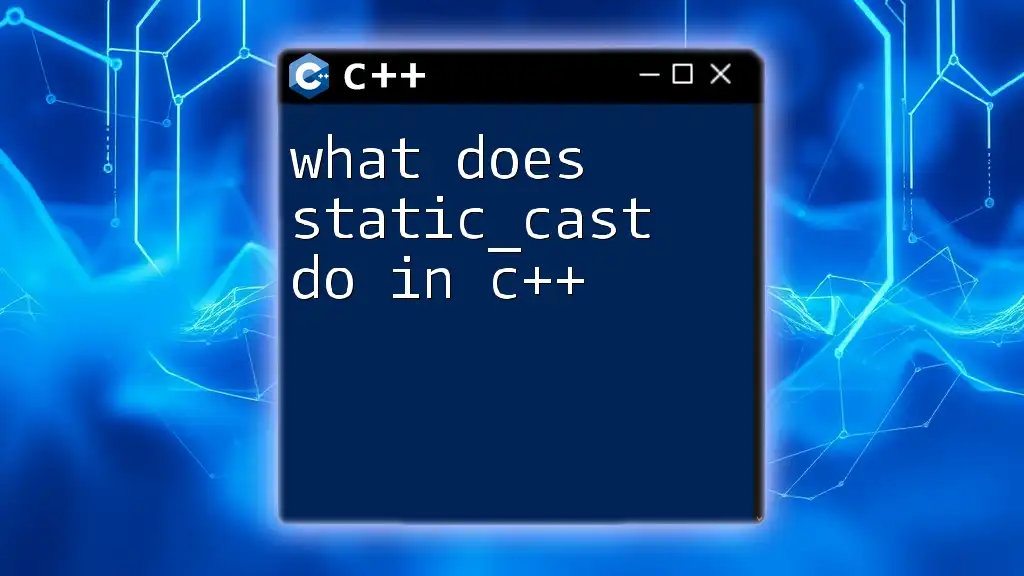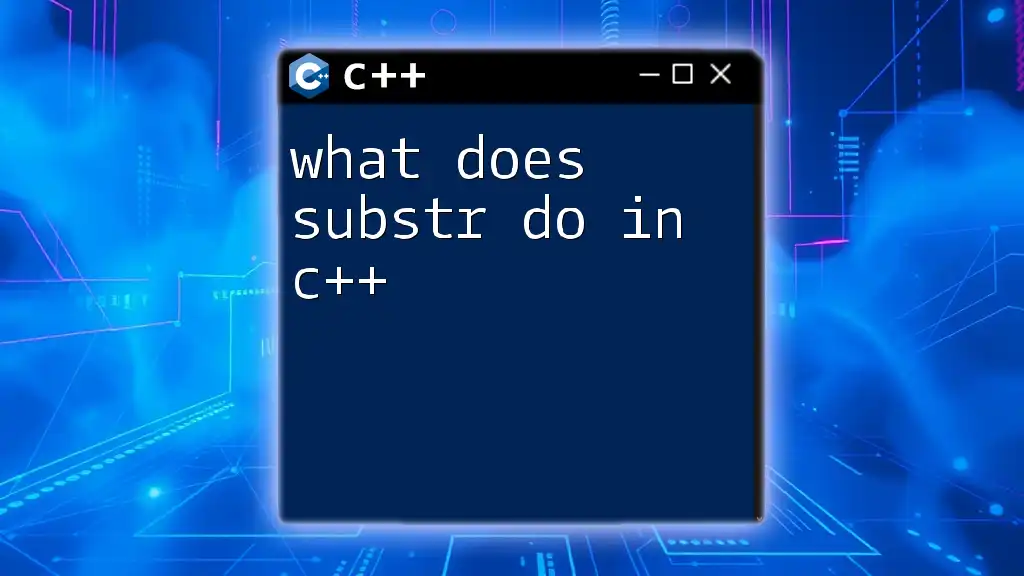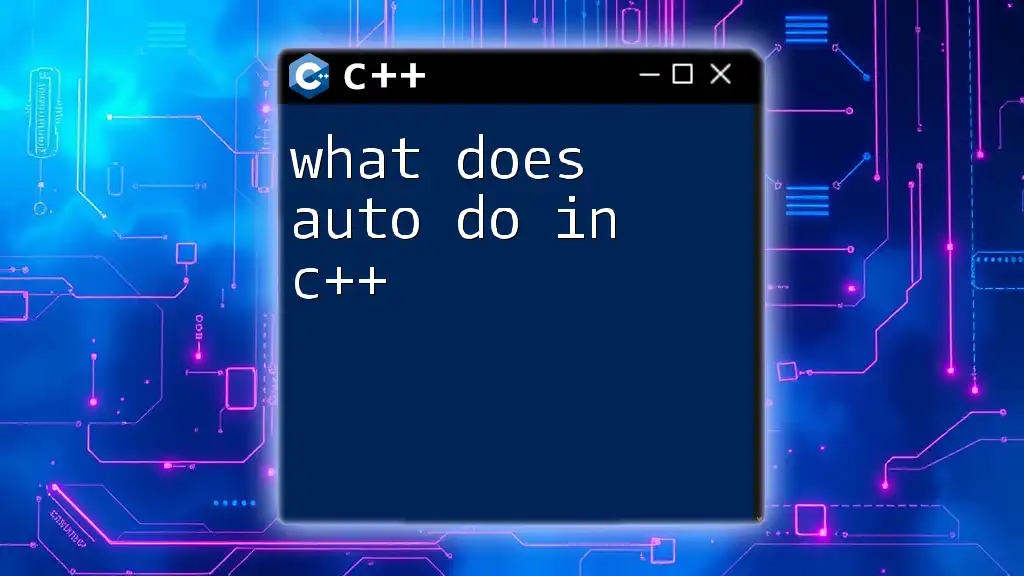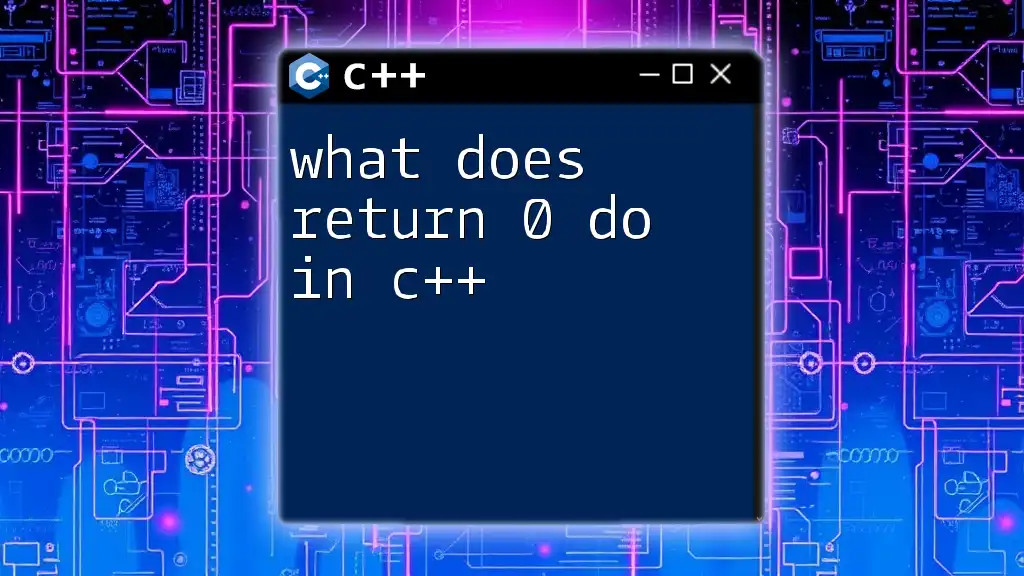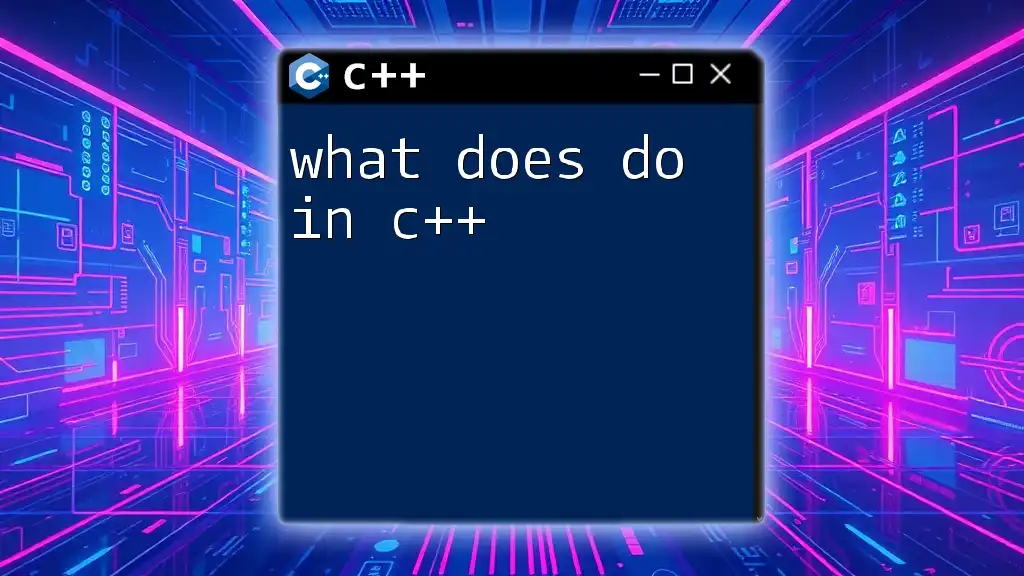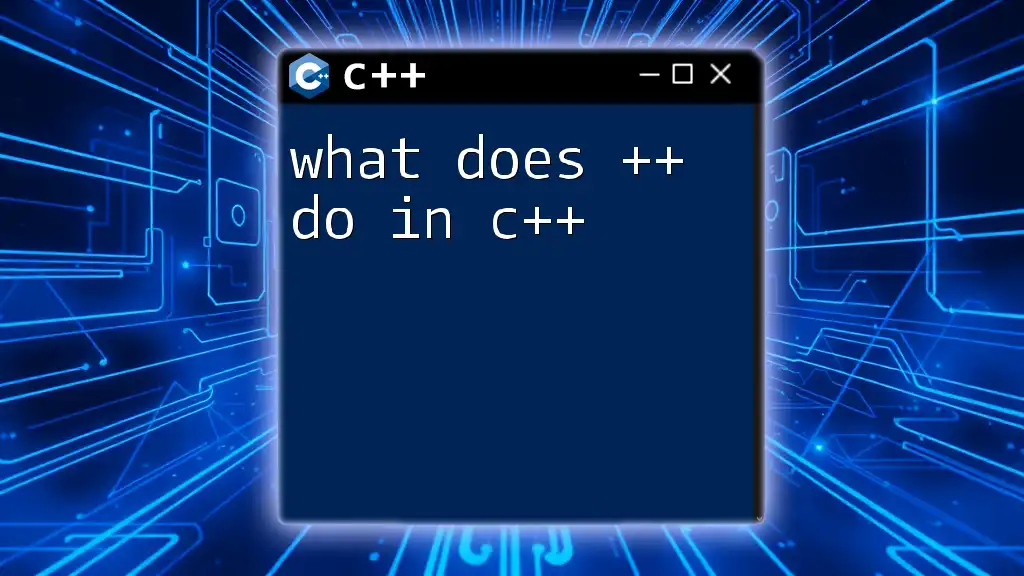`static_cast` in C++ is used to explicitly convert one type to another at compile time, ensuring type safety and preserving the semantics of the conversion.
int main() {
double myDouble = 10.5;
int myInt = static_cast<int>(myDouble); // Converts double to int
return 0;
}
Understanding Type Casting in C++
What is Type Casting?
Type casting in C++ is the process of converting one data type into another. This conversion can be implicit, which the compiler performs automatically, or explicit, where the programmer specifies the conversion.
For example, when you assign an integer to a double, C++ implicitly converts it:
int a = 5;
double b = a; // Implicit conversion
However, explicit casting, often referred to as type casting, is performed when you want more control over the type conversion process. For instance:
double d = 9.7;
int i = (int)d; // Explicit conversion
Why Use Type Casting?
Type casting is essential in many programming scenarios for a few reasons:
- It allows for conversion between types, facilitating various operations that may involve different kinds of data.
- Proper type casting helps avoid data loss when transitioning from one data type to another, thus preventing unexpected behavior in programs.
- It promotes clean and maintainable code by making intentions clear about how types are manipulated and converted.

What is `static_cast`?
Definition
`static_cast` is a C++ operator that is used to perform conversions between types while checking for type compatibility at compile time. Unlike C-style casting, which is more permissive and can lead to unsafe conversions, `static_cast` enforces stricter rules, making it safer for type conversion.
When to Use `static_cast`
You should use `static_cast` in scenarios where you need:
- Upcasting and Downcasting: It is commonly employed when dealing with class hierarchies. Upcasting (casting from derived to base class) is always safe, while downcasting (casting from base to derived class) requires caution.
- Converting between numeric types: For example, converting a `double` to an `int`.
However, beware of situations where `static_cast` may lead to logical errors or data loss, especially during downcasting when you're unsure of the actual object type.
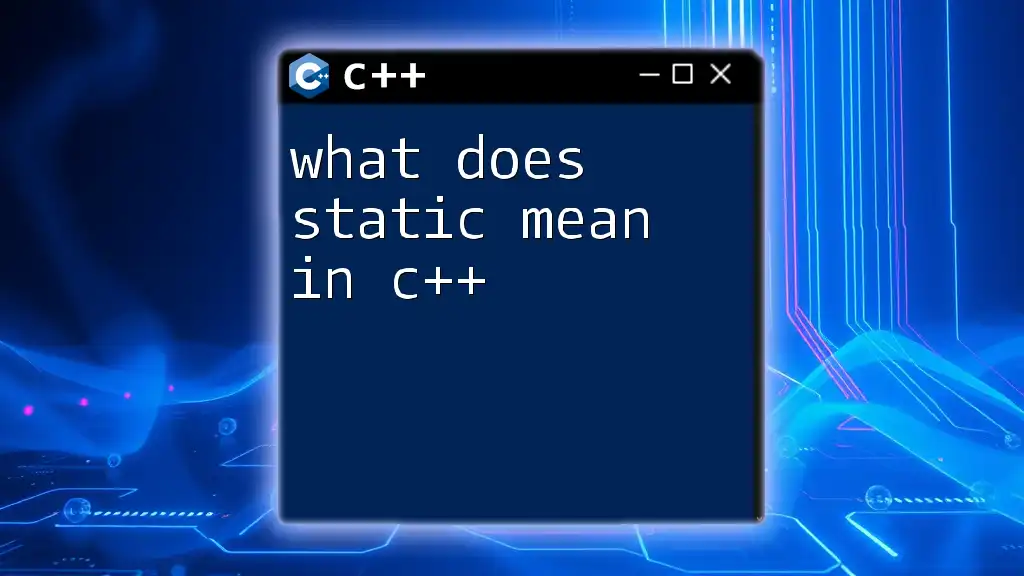
How to Use `static_cast`
Syntax of `static_cast`
The syntax for using `static_cast` is straightforward:
static_cast<target_type>(expression)
This format clearly states the kind of conversion you wish to perform, enhancing code readability.
Target Types
The `target_type` can be any valid data type, be it a built-in type (like `int`, `float`, etc.) or user-defined types (like classes). Always ensure that your target type is appropriate for the value being cast, as incorrect usage could lead to runtime errors or undefined behavior.
Examples of Using `static_cast`
Converting between Numeric Types
A common use case for `static_cast` is when converting between numeric types. For instance:
double pi = 3.14;
int intPi = static_cast<int>(pi); // Converts double to int, resulting in intPi = 3
In this example, `static_cast` converts `3.14` to `3`, demonstrating data loss when moving from a floating-point to an integer type.
Converting Pointers and References
`static_cast` can also be used with pointers and references, particularly in cases involving inheritance:
class Base { /* ... */ };
class Derived : public Base { /* ... */ };
Derived* derivedPtr = new Derived();
Base* basePtr = static_cast<Base*>(derivedPtr); // Upcasting
In this code, `derivedPtr` is safely cast to a `Base*` type without any loss of information. This is a typical case of upcasting where a derived class pointer is treated as a base class pointer.
Working with Derived Classes
When dealing with class hierarchies, `static_cast` can also be used for downcasting:
class Animal { /* ... */ };
class Dog : public Animal { /* ... */ };
Animal* animal = new Dog();
Dog* dog = static_cast<Dog*>(animal); // Downcasting
While it seems straightforward, downcasting requires caution because if `animal` does not actually point to a `Dog` object at runtime, it can lead to undefined behavior. Always ensure the type is correct before performing such a cast.
Errors and Limitations
Compile-Time Errors
One of the advantages of `static_cast` is that it helps prevent errors at compile time. If you attempt to cast incompatible types, the code will not compile, as shown here:
double d = 5.0;
int* ptr = static_cast<int*>(&d); // Error: cannot convert double* to int*
This safety net helps developers avoid many common pitfalls associated with more permissive casting methodologies.
Misuse of `static_cast`
Although `static_cast` provides type safety, it can be misused. For instance:
int* intPtr = nullptr;
double* doublePtr = static_cast<double*>(intPtr); // Incorrect usage
In this case, the code compiles but does not make logical sense. Dereferencing `doublePtr` would lead to undefined behavior because the original value was `nullptr`, and you're treating it as a `double`.

Best Practices
Use Cases for `static_cast`
When using `static_cast`, it is usually preferable in scenarios where:
- You are certain of the type hierarchy (like upcasting).
- You are converting between basic data types.
- You need to convey clearly your intention in the code.
Avoid overusing `static_cast` for every type conversion need, as excessive casting might obscure the code's intention, making it harder to read and maintain.
Alternatives to `static_cast`
In scenarios where you require different behavior, consider other casting operators. For example:
- Use `dynamic_cast` when dealing with polymorphic types and safe downcasting. It checks at runtime whether the cast is valid and returns `nullptr` if it is not.
- Use `reinterpret_cast` for low-level casts where you might want to handle raw memory.
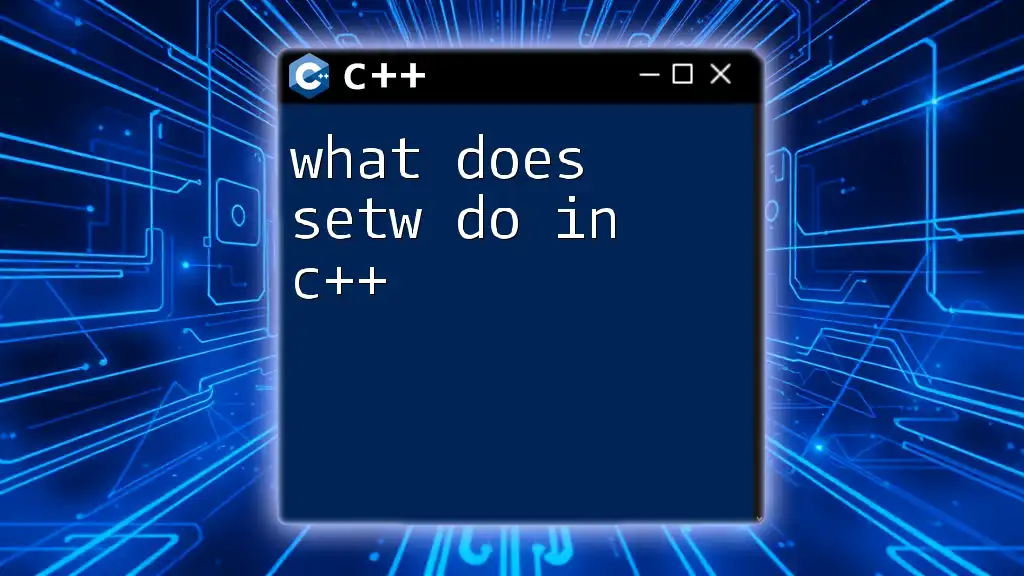
Conclusion
In summary, understanding what does `static_cast` do in C++ is essential for type safety and effective coding practices. It provides a safer alternative to traditional casting methods, ensuring type compatibility and preventing many common errors associated with type conversion.
By practicing and experimenting with `static_cast`, you can deepen your understanding of type conversions, leading to clearer, safer, and more maintainable code. Don't hesitate to explore other casting techniques to become a more adept C++ programmer!

Additional Resources
For further learning, consider exploring C++ books and online exercises specific to type casting to enhance your understanding and skills in the language.

